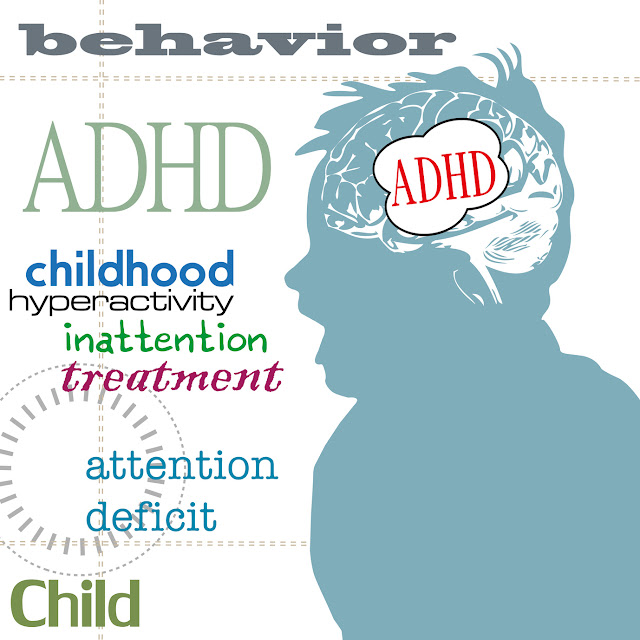You will find that most children with ADHD do not seem to grow out of it even in adulthood. ADHD is attention deficit hyperactivity disorder, and it affects the children even when they are grown-up. The performance in school might be poor, which carries on to their jobs and careers. It is a sad fact that most adults with this problem seems to be undiagnosed and untreated. You can diagnose and treat ADHD at all ages, and it is the only problem that lies in detecting this. If you have any inclination that you might be suffering from ADHD, it is advisable to opt for the evaluation with the assessment test and it gets the required treatment as early as possible.

Evaluation ADHD in a Proper Manner
This evaluation or the ADHD assessment test can be done by any licensed health care professional. This cannot be diagnosed in one sitting, it involves multiple procedures and tests to be sure of this and there are certain protocols that need to be followed. A diagnostic which is comprehensive should be able to include:
- An interview which is diagnostic and which includes a complete history of the present and past functioning.
- The total history (academic, medical, family, social, developmental)
- Checklists of the symptoms of ADHD.
- Scales for behavior rating which is standardized for ADHD.
- Other tests which are psychometric as deemed as essential from the clinician’s point of view.
- Review of school records and evaluations.
- Screening for co-morbid conditions present.
Participation of the other for the assessment
It is essential for the clinician to be able to interview the significant other, be it any family member or the spouse who knows the person. You find that there are adults with ADHD who have a poor or spotty memory of their past, more so, of their childhood. They might be able to remember few details, forgetting the important ones. The person involved might be asked to get a questionnaire filled by his/her parents or sibling regarding behavior in their childhood.
Tests of Attention and Vigilance
There are clinicians who prefer to make use of computerized tests of attention for additional information. These tests are not diagnostic but they play an important role in helping the clinician to provide information. Therefore, if an adult obtains a score which is normal, ADHD cannot be ruled out.
Psychological Testing in evaluating ADHD in Adults
There might be a possibility of the clinician using other neuropsychological, psychological and psycho educational tests for different concerns in different individuals. These tests can be helpful in giving information about how ADHD can affect different areas for functioning in an adult, mainly the intellectual and emotional functioning. Psychological testing can help in determining the effects and presence of conditions which are co-existing.
It is essential for the clinician to be able to interview the significant other, be it any family member or the spouse who knows the person. You find that there are adults with ADHD who have a poor or spotty memory of their past, more so, of their childhood. They might be able to remember few details, forgetting the important ones. The person involved might be asked to get a questionnaire filled by his/her parents or sibling regarding behavior in their childhood.
Tests of Attention and Vigilance
There are clinicians who prefer to make use of computerized tests of attention for additional information. These tests are not diagnostic but they play an important role in helping the clinician to provide information. Therefore, if an adult obtains a score which is normal, ADHD cannot be ruled out.
Psychological Testing in evaluating ADHD in Adults
There might be a possibility of the clinician using other neuropsychological, psychological and psycho educational tests for different concerns in different individuals. These tests can be helpful in giving information about how ADHD can affect different areas for functioning in an adult, mainly the intellectual and emotional functioning. Psychological testing can help in determining the effects and presence of conditions which are co-existing.
Co-existing Conditions with ADHD
It has been found out that more than 60 percent of individuals with ADHD have co-existing conditions. You find anxiety disorders, depression, substance abuse, bipolar disorder and also learning disabilities. Many of these conditions tend to mimic ADHD (forgetfulness, distraction, restlessness) and are at times mistaken for the disorder.
When there are co-existing conditions with this ADHD, it becomes more important to treat them after diagnosing them as if these conditions are left untreated, it can be a failure to treat ADHD. In case of substance abuse, even if it is in the past, a detailed history of the use besides the abuse should be taken into account.
Requirement of a Medical Examination is essential
There are few medical conditions like seizure disorders or thyroid problems that can cause symptoms similar to ADHD. If the adult assessed for ADHD has not had a medical examination for the past 6 to 12 months, it is advised to go for examination so that the medical symptoms can be ruled out. You might be required to go for laboratory tests to be sure of your condition.
This blog help you to get all the necessary details about ADHD assessment test. Let’s go here to get more information about it.






0 comments
Note: only a member of this blog may post a comment.